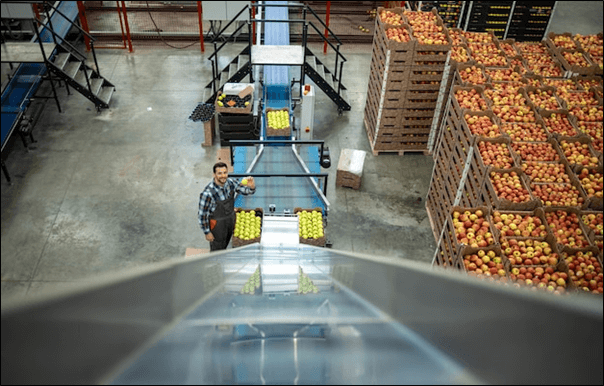The demand for Food and Beverage (F&B) items has been increasing significantly. This is mainly due to the higher consumption of international and frozen foodstuffs. Grocery products are fragile and perishable like fruit and vegetable. Appropriate warehousing and logistics planning is required for the storage of perishable goods. With the high demand of food and beverage business owners are facing the important yet tricky challenge of having full and proper control over supply chain and inventory. A warehouse is a facility to store goods. The food and beverage sector will be more efficient and cost-saving by having good management to focus on warehouse planning, and operations and ensure optimize of warehouse storage. This article discusses the key focus areas in the food and beverage warehouse and ensures efficient warehouse management for the food supply chain.
Table of Contents
Warehouse Design and Layout
A practical warehouse layout design has a direct impact on warehouse productivity and efficiency and this is a crucial process. It is important that the planned layout should arrange the processes in sequence which can help to streamline operations, boost productivity, and reduce expenses cost. In addition, a well-optimized and executed warehouse layout design can provide easy access to stored goods, improve order fulfillment rates and minimize travel time. There are a few principles to consider while designing a warehouse layout. When designing a warehouse layout, it is crucial to allocate maximum space for storage and inventory processing purposes while minimizing space for office areas, empty pallets, charging stations, etc. Secondly, the smooth functioning of the warehouse must ensure no interrupted flow of goods, personnel, and equipment. Different types of equipment or machine can be used in the warehouse, such as lifting and packing tools, pallet racks, or conveyors, which can easily influence the layout design.
Warehouse Management System (WMS)
WMS is a software application that helps control and administer day-to-day operations functions in the warehouse from the time goods enter the warehouse until the goods move out. WMS helps reduce the number of mistakes, especially human errors that might take place over the entire warehousing process. There are a few types of WMS that may be considered such as Standalone Systems, Enterprise Resource Planning (ERP), Module and Cloud Based Platforms. Firstly. A standalone system is a classic type of system that is installed on the native hardware and network and consists of inventory management and warehouse operations and lower costs incur. Secondly, an efficient ERP solution coordination and merge three key flows such as material flows, information flows, and financial flows. Thirdly, Module and cloud Based Platform takes the onus of installing, managing, and upgrading the system of the IT department is a model that uses cloud technology to manage the WMS inputs.

Standard Operation Procedures (SOPs)
SOPs are important to ensure consistency in daily operations on the component of the food safety system. For example, The First-in First-out (FIFO) and First Expire First-Out (FEFO) stock rotation systems for the storage of packaged food products are strongly recommended to ensure that the food is safe for consumption. The cleaning and disinfecting chemicals should be handled properly with the SOP set by the company and stored separately away from the food in the warehouse or storage. Standard practice in a food handling warehouse should keeping appropriate storage records, distribution, pest control, cleaning and sanitation, product recall records, etc. The warehouse department should keep the paperwork properly for at least one year of the food products as a record.
Food Safety and Security
Food and beverage companies are required to adhere to strict rules and regulations. There is a joint responsibility of the government, the food industry, and the consumers of the food industry to have an assurance of food safety. All parties have an important role to play in ensuring food safety. Singapore Food Agency (SFA) is the government authority for food safety in Singapore.
The full content is only visible to SIPMM members
Already a member? Please Login to continue reading.


